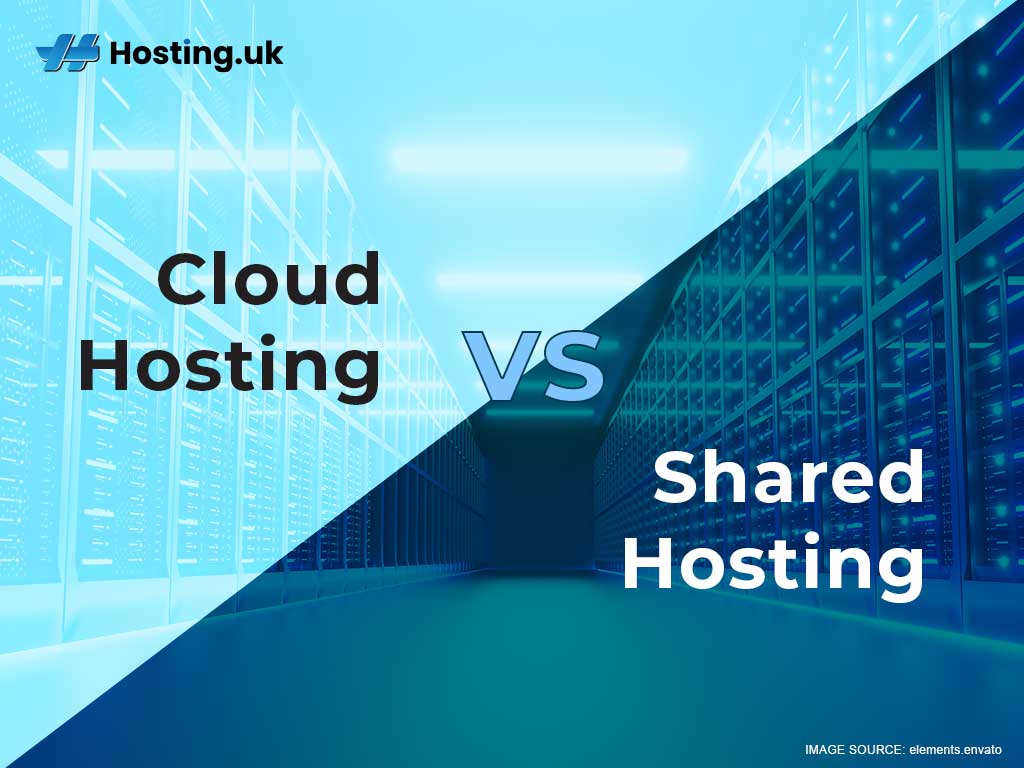If you are starting a website or looking to respond to growing traffic on an already established site, choosing a hosting UK plan can sometimes be a daunting task. Do you go for the inexpensive shared hosting option or is cloud hosting a better fit for your needs?
For example, if you are a big business in the UK, experiencing a significant increase in traffic or looking to collect payments or sensitive data from users, you may be interested in getting the best cloud hosting. However, that plan may not be ideal if you’re starting up a small or medium sized website or a small fashion or lifestyle blog.
In this post, we’ll break down shared hosting and cloud hosting UK to give you better understanding of each and enable you to make the best choice. We’ll explain what each is, the differences between them and which one may be better for your business needs.
Table of Contents
What does Shared Hosting UK mean?
First of all, shared hosting is when one server is shared among several websites. Shared Hosting UK services cater to UK residents and others around the world by providing them with top tier UK-based hosting.
Remember, in shared hosting, a set number of subscribers use the same resources from the server. But don’t worry, there’s a lot of computing resources and users typically have more than enough to operate their website successfully. But if it so happens that traffic to your site significantly increases and you need more resources, you can always buy more on a shared hosting plan.
What is Cloud Hosting?
Cloud hosting is a collection of a host of physical servers that are stored in a secure data center hosting numerous virtual servers.
To operate, Cloud hosting needs cloud computing technologies that allow an unrestricted number of machines to successfully function as a single system. Cloud hosting can be summed up as a virtual, public server hosting platform.
What’s the difference?
1. Organization: Shared vs Cloud Hosting UK
One of the main differences between shared and cloud hosting is how each of them is organized. Shared hosting is organized as a single dedicated server hosting multiple websites.
This server is built and maintained by web hosting companies.
With Cloud hosting on the other hand, exists on several servers. So unlike shared hosting, your website is hosted in the cloud rather than on one shared server.
2. What do they cost?
For only a few dollars a month, you can get a shared hosting plan that suits your needs. Because of the communal sever model, shared hosting is generally the cheapest and most used hosting choice for a majority of websites on the internet. But to get the scalability, backup, and performance advantages that cloud hosting offers, you’ll have to pay significantly more than you would for shared hosting services.
So, instead a few dollars, you could be paying anywhere from £15 to £20 dollars a month for a cloud hosting plan. But hosting.co.uk, for example, has a business plan starting as low as £7.20 per month.
3. Which Performs better?
With shared hosting, you are more likely to experience slower speed and performance. Why? Some web hosts load a ton of websites on each server and all of them are vying for the same set of resources. This can end up slowing down your speed and overall performance.
Cloud hosting on the other hand is more dynamic and less likely to result in speed and performance slowdowns for users.
Hosting.uk guarantees a 99.99 percent uptime which is made possible because cloud hosting exits on multiple servers. This allows your web host to bounce your hosting between servers, if there’s a spike in activity that could negatively impact your site’s performance.
4. Security
With shared hosting you are never sure who you’re sharing a server with. You are also not aware of what other users are doing on their site and this could cause problems for you.
If, let’s say, there’s a successful cyber-attack on one website, all the other sites on the server are also left vulnerable. The multiple servers that cloud hosting exists on, reduces these risks for users. It is therefore viewed as a more secure option than shared hosting.
Learn more about what to look for in a secure cloud hosting plan here.
The verdict: which is better?
Deciding which plan is better is totally dependent on your business needs. If you are a smaller business that’s just starting out and need a hosting plan that’s cheap, has fundamental features and can manage the current traffic to your site, shared hosting might be your best option.
But if you have a high traffic site, run an e-commerce business and need more security than shared hosting provides, cloud hosting is a better option.
Summary
Websites are unique. They differ in look, size and purpose. As such, choosing a hosting plan is supposed to be a well thought out process, because the plan you choose should enhance your site and its performance. So, decide what your needs are and choose a plan that fulfill those needs.
